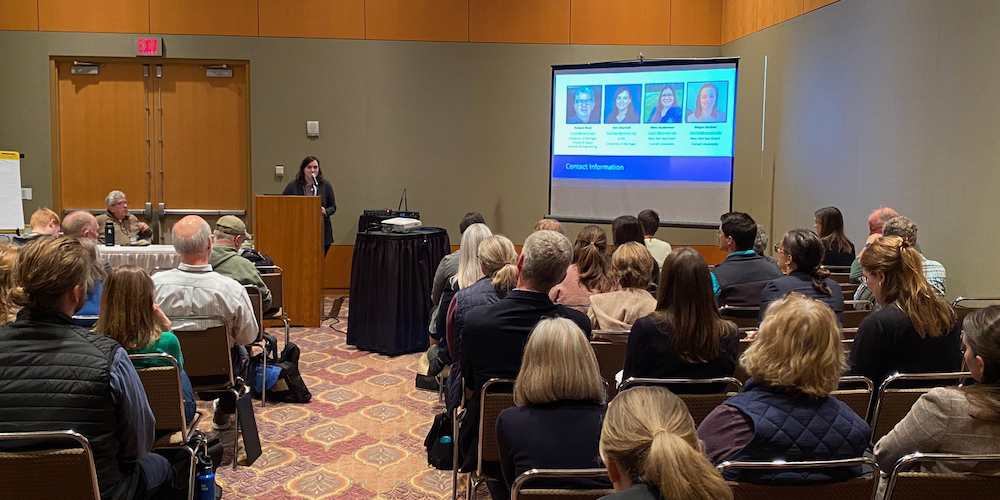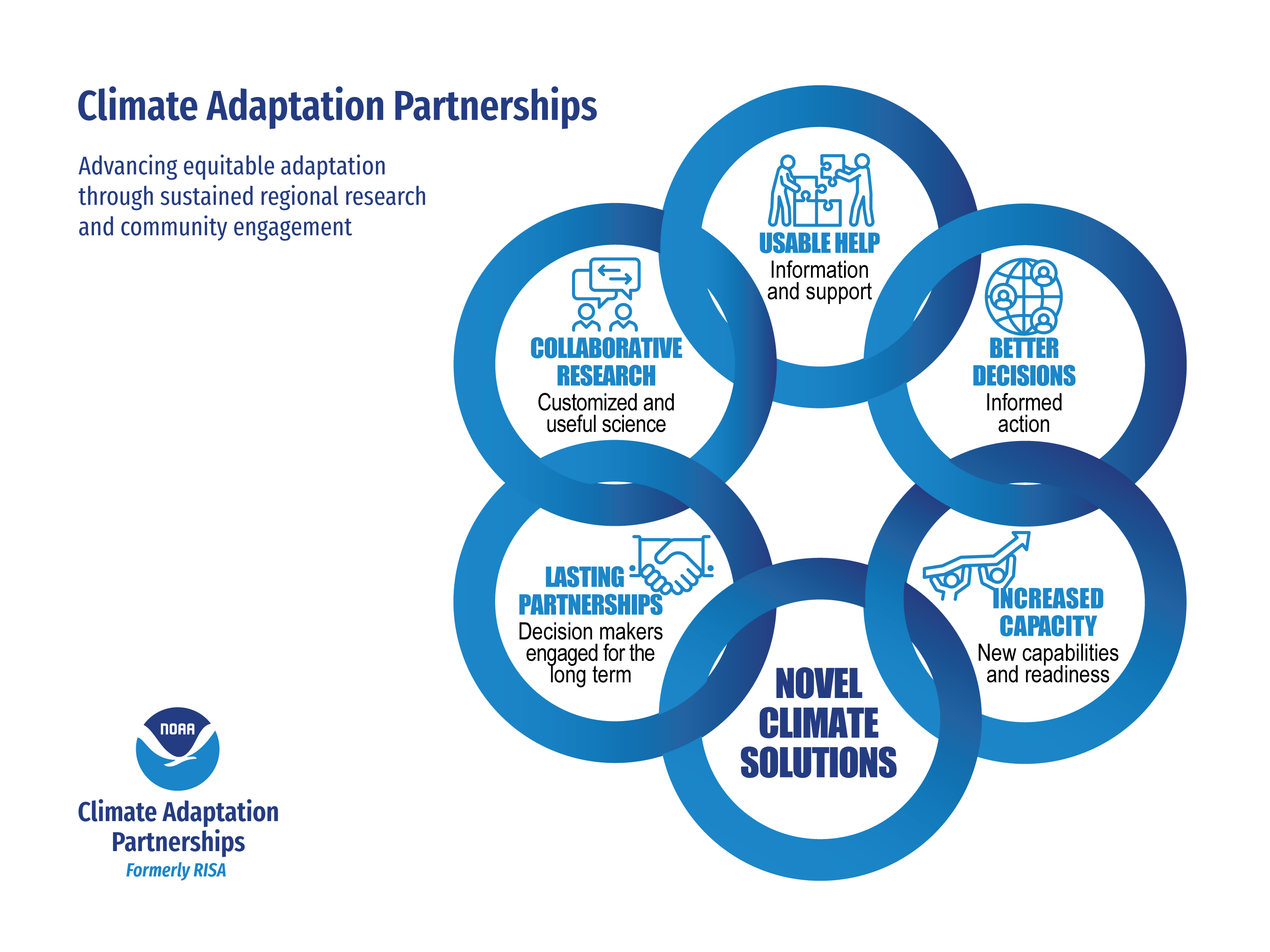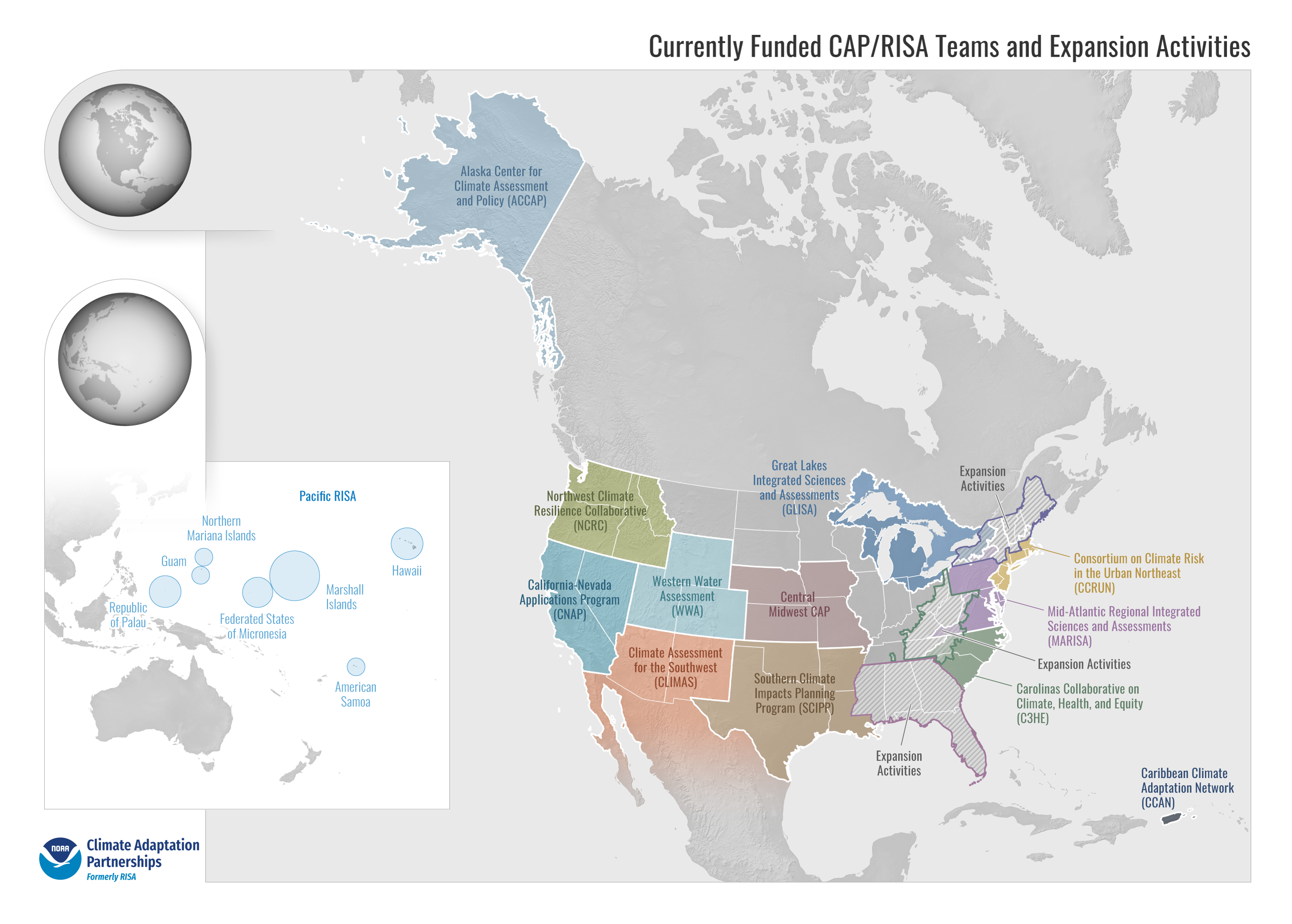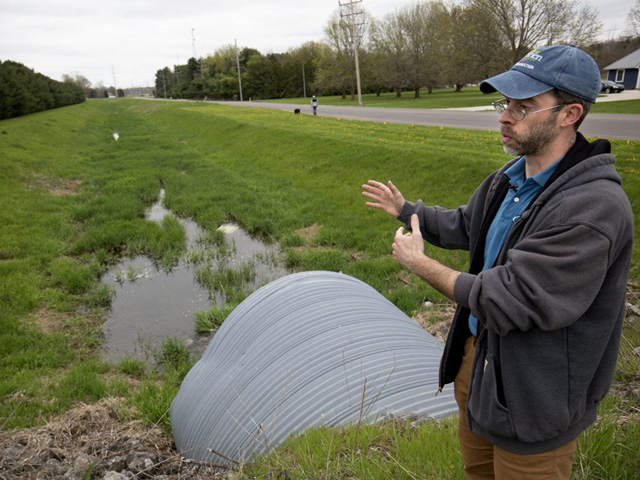Climate Adaptation Partnerships Program
Climate Adaptation Partnerships Program Formerly known as the Regional Integrated Sciences and Assessments (RISA) Program
NOAA Climate Adaptation Partnerships (CAP) / Regional Integrated Sciences and Assessments (RISA) program is an applied research and engagement program that expands society’s regional capacity to adapt to climate impacts in the U.S. The CAP/RISA program supports sustained, collaborative relationships that help communities build lasting and equitable climate resilience. Funded by 5-year cooperative agreements with NOAA, the work is accomplished by teams of research institutions, nonprofit organizations, and state/local/Tribal governments in multi-state regions. CAP/RISA teams engage in a variety of applied and co-developed research and engagement with communities. A central tenet of the CAP/RISA program is that learning about climate adaptation and resilience is facilitated by and sustained across a wide range of experts, practitioners, and the public. Learning about and doing adaptation happens within social contexts. As such, the CAP/RISA program supports networks of people working together to plan for and adjust to change using science and local knowledge.
Why is NOAA changing the name of the RISA program
In 2022, Congress directed NOAA to change the name of the Regional Integrated Sciences and Assessments (RISA) program to “Climate Adaptation Partnerships (CAP).” This new name is fitting for the program as it exists today. “Climate” acknowledges the program’s focus on long-term change and variability. “Adaptation” encompasses approaches to reduce negative impacts of climate change and maximize emerging opportunities. “Partnerships” refers to the web of collaborative relationships between researchers and community decision makers within the regions…more.






